What are the warning signs of sleep apnea?

Sleep apnea is a significant disorder that impacts millions of individuals around the globe. It’s a disorder characterized by pauses in breathing during sleep, which can lead to a host of health problems. While many people may be unaware of the condition, recognizing the warning signs can be crucial for early diagnosis and treatment.
Common Symptoms of Sleep Apnea
- Snoring: Loud, heavy snoring is often a telltale sign of sleep apnea. It’s caused by the vibration of tissues in the back of the throat as they relax and obstruct the airway.
- Choking or Gasping: If you frequently wake up gasping for air or choking, it could be a sign of sleep apnea. These episodes occur when the brain senses a drop in oxygen levels and jolts you awake to restore breathing.
- Daytime Sleepiness: Excessive daytime sleepiness, even after getting enough sleep, is a common symptom of sleep apnea. The interruptions in sleep can leave you feeling tired and groggy throughout the day.
- Morning Headaches: Waking up with headaches is another potential sign of sleep apnea. The lack of oxygen during sleep can lead to changes in blood flow to the brain, resulting in headaches upon waking.
- Dry Mouth: If you frequently wake up with a dry mouth, it could be a sign of sleep apnea. The condition can cause your mouth to open and dry out during sleep.
- High Blood Pressure: There is a strong connection between sleep apnea and elevated blood pressure. The repeated interruptions in breathing can put stress on the cardiovascular system, leading to elevated blood pressure.
- Mood Changes: Sleep apnea can also affect your mood. The lack of quality sleep can contribute to irritability, anxiety, and depression.
- Restless Sleep: If you often toss and turn throughout the night or have trouble falling asleep, it may be a sign of sleep apnea. The interruptions in breathing can disrupt your sleep cycle.
The Role of a Sleep Apnea Dentist
While a doctor can diagnose sleep apnea, a sleep apnea dentist plays a vital role in providing treatment options. Dentists who specialize in sleep apnea can evaluate your oral anatomy and identify any potential obstructions to your airway. They may recommend oral appliances, such as mandibular advancement devices (MADs), to help keep your airway open during sleep.
Beyond Snoring: The Hidden Dangers of Sleep Apnea
Sleep apnea is more than just a nuisance. If not addressed, it can lead to significant health issues. Some of the potential complications include:
- Heart disease: Sleep apnea can increase the risk of heart attack, stroke, and heart failure.
- Diabetes:There is a connection between sleep apnea and a higher likelihood of developing type 2 diabetes.
- Cognitive impairment: The lack of oxygen during sleep can affect brain function, leading to difficulty concentrating, memory problems, and even dementia.
- Depression: Sleep apnea can contribute to depression due to the impact it has on overall health and well-being.
- Increased risk of accidents: Sleep apnea can make you more prone to accidents, as daytime sleepiness can impair your ability to react quickly.
Seeking Help for Sleep Apnea
If you recognize any of the warning signs of sleep apnea, it’s important to consult with a sleep apnea dentist. A sleep study can be conducted to confirm the diagnosis and determine the severity of the condition. Timely diagnosis and intervention can greatly enhance your quality of life and lower the chances of complications.
Remember, sleep apnea is a treatable condition. By being aware of the warning signs and seeking appropriate medical attention, you can take control of your health and enjoy a better night’s sleep.
Additional Tips for Managing Sleep Apnea
- Maintain a healthy weight: Excess weight can contribute to sleep apnea by putting pressure on the airway.
- Avoid alcohol and sedatives: These substances can relax the muscles in your throat, making it more likely for your airway to collapse.
- Sleep on your side: Sleeping on your back can worsen sleep apnea by allowing the tongue and soft palate to fall back and block the airway.
- Quit smoking: Smoking can irritate the airways and increase the risk of inflammation.
By making lifestyle changes and working with a healthcare professional, you can effectively manage sleep apnea and improve your overall health.



